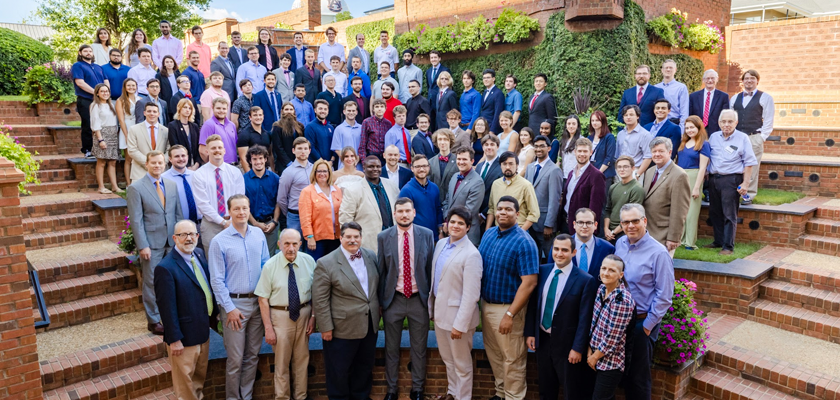Mises University concluded last week at the Ludwig von Mises Institute in Auburn, which is celebrating the 40th anniversary of its founding.
Students gathered this week at the Mises Institute’s campus to learn about the Austrian school of economics and libertarian political theory.
Austrian economics is an economic tradition originating in Vienna, Austria, in the late 19th and early 20th centuries. It relies on a theoretical methodology known as praxiology, which is opposed to mainstream schools of economics that rely on purely empirical methods.
Austrian economists, however, are no longer mostly Austrian in origin, as the name might suggest. Austrian economists believe that unhindered market profit and loss are critical measurements that entrepreneurs use to allocate resources effectively.
Austrians are typically critical of government intervention, government spending, taxation, fiat currency, the Federal Reserve, the welfare and warfare state, socialism and Marxism. They typically favor free market economies, private property and political decentralization.
Many Austrians are also libertarians, donning the label, Austro-Libertarianism.
The Mises Institute is located across the street from Auburn University on West Magnolia Avenue. The institute's namesake, Ludwig von Mises, was an Austrian economist famous for his criticism of socialism and arguments in favor of classical liberalism.
Mises fled from Nazi-occupied Austria to the United States in 1940. He was the mentor of economist and political theorist Murray Rothbard, who helped Lew Rockwell start the Mises Institute in 1982.
Mises’s ideas have been promoted by former U.S. Rep. Ron Paul, who ran for president as a Libertarian in 1988 and as a Republican in 2008 and 2012.
Paul started a grassroots movement often referred to as the “Ron Paul Revolution,” which fought for the return to the gold standard, the end of the Federal Reserve, the end of the War on Drugs and anti-interventionist foreign policy, among other issues.
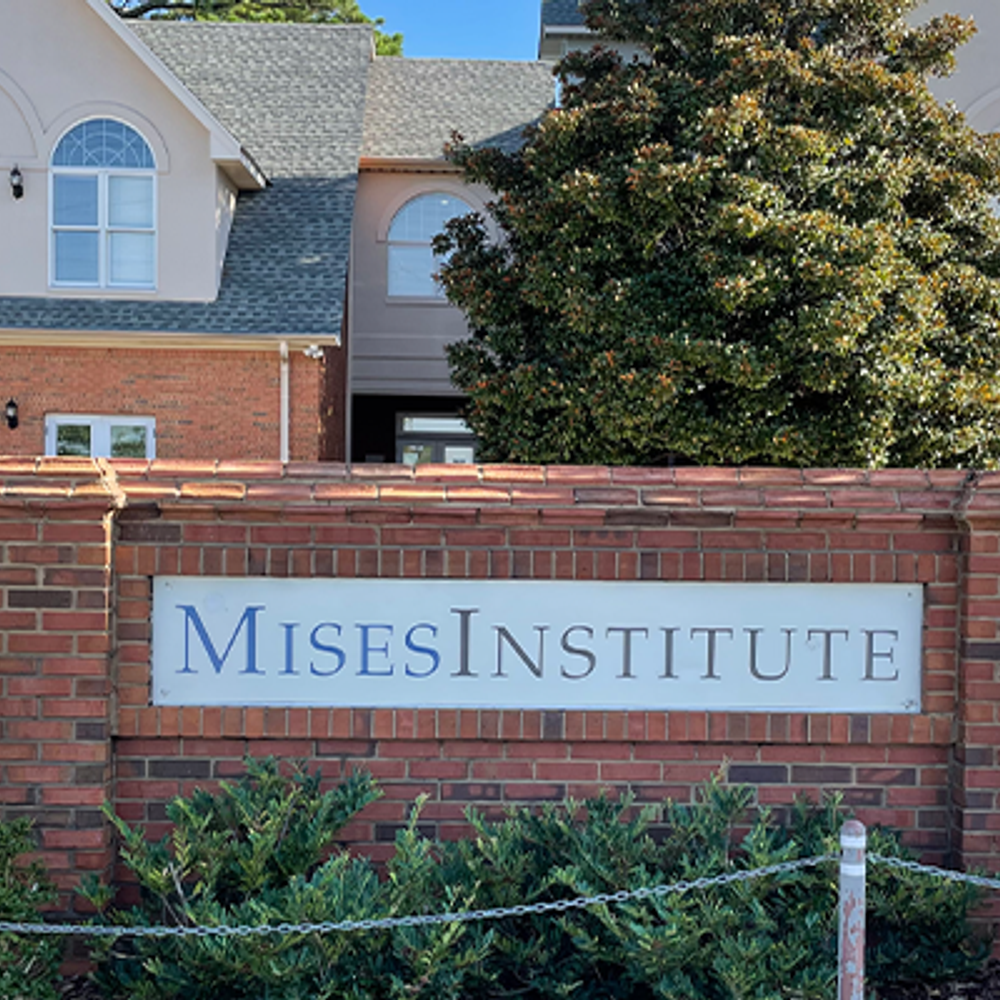
Topics and discussion
Mises U students joined fellows and scholars at the Mises Insitute Sunday through Saturday to listen to lectures about the economics, politics and philosophy of Austrian economics and libertarianism.
Mises Institute president Jeff Deist delivered opening remarks on Sunday night and was followed by actor and podcaster Clifton Duncan.
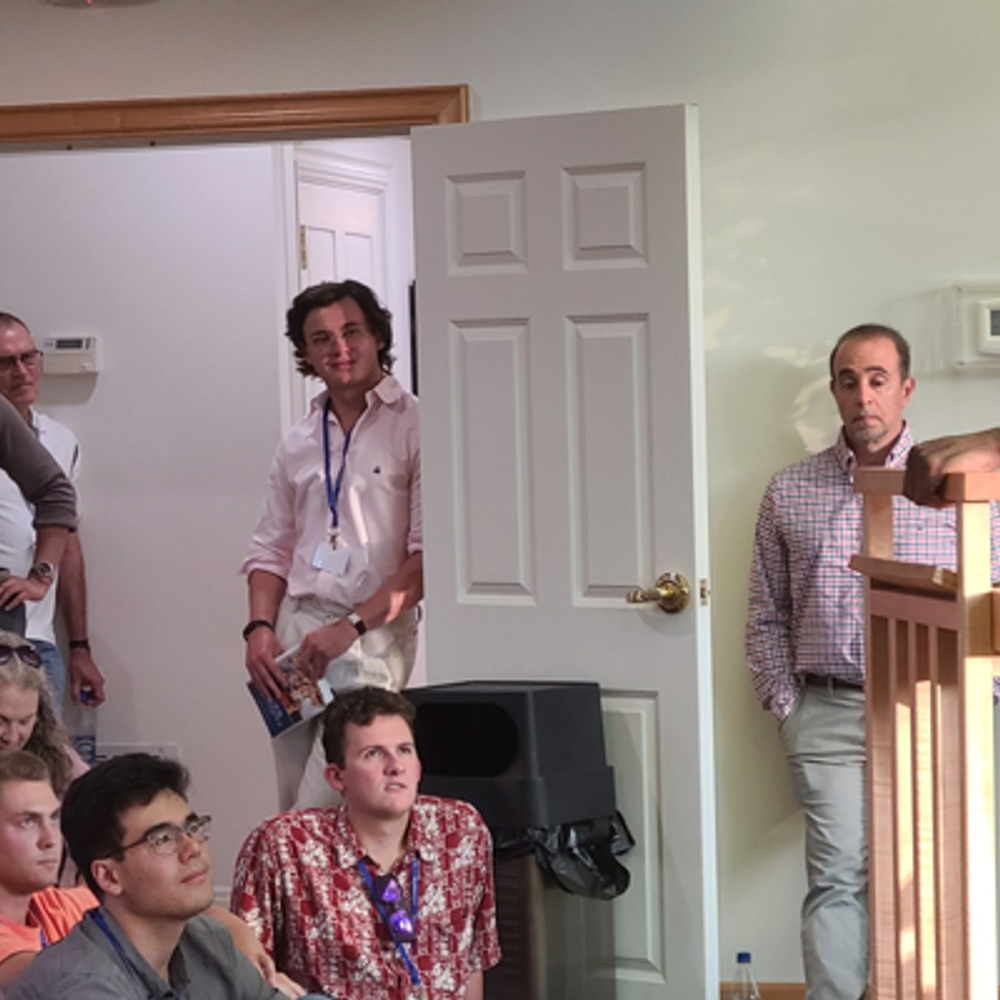
Senior fellow Thomas DiLorenzo spoke Wednesday morning about Mises’s predictions of progressivism and the growth of centralized government.
DiLorenzo just released a new book, “The Politically Incorrect Guide to Economics,” which was available in the Mises Bookstore for students to purchase.
In his talk, DiLorenzo criticized the way the federal government regulates private enterprise and redistributes wealth. He described the federal government as “regulatory socialist” or “fascist.”
“Nationalization, taxation and inflation: those were Mises’s main things that he wrote about pretty briefly as the essential tools of destruction,” DiLorenzo said. “So to update that… one of the things I looked at is if you go get the [United States government’s] statistics and total government spending as a percentage of national income… at the end of the decade in which Mises published his book, 1927, you’ll come up with 7%
“… If you look up the exact same spending today … you get 45%. That’ll tell you that the economy is at least 50% socialist just on that measure alone, not even considering the effects of government regulations and control of every business in America.”
DiLorenzo also criticized other large governments around the world, such as France and Australia.
Later that morning, Carl Menger research fellow Peter G. Klein spoke about issues surrounding Big Tech, including “corporate wokeness,” the recent tendency for corporations to promote left-wing agendas.
Klein is also the W.W. Caruth chair and professor of entrepreneurship at Baylor University’s Hankamer School of Business and a senior research fellow at Baylor’s Baugh Center for Entrepreneurship and Free Enterprise.
“There’s a lot of criticism of the tech sector, not only from politicians and regulators and commentators on the political left, concerned mainly with these sort of anti-trust concerns but also those on the political right,” Klein said. “... There are concerns that the tech sector is not only affected by the recent trend that we can call ‘wokeness,’ but also that the tech sector is an enabler of or a driver of ‘wokeness.”
In his lecture, Klein asked why large corporations are playing a role in the “woke” movement, which seems to be in opposition to free enterprise.
“If customers are willing to buy more, pay higher prices to a company that pays fealty to woke values, then it is profitable for a company to do so,” Klein said. “Or maybe you want to hire a particular type of employee … you go ‘woke’ to try to attract them. That’s this idea of ‘wokewashing.’ We’re not really committed to these ideas normatively, but we can make more money acting like we are.”
SEE ALSO: Troy University’s Johnson Center to launch Free Enterprise Scholars program to combat 'woke capitalism'
Klein said another explanation for the left-wing tilt of large corporations is that top executives are themselves ideologically motivated. However, he said “middle managers” might play a bigger role in this phenomenon.
“It turns out empirically that most of these ‘woke’ initiatives are really not coming from rank-and-file employees,” Klein said. “They’re not being primarily pushed by CEOs or by boards of directors. It’s really a kind of middle manager position, HR directors, people who run DEI programs in companies.”
Other topics throughout the week included money, banking, the minimum wage, interest, competition and monopoly, wokeness, protectionism, inflation and the economic effects of COVID-19.
The Mises Institue will upload all of this week’s lectures on its YouTube channel, where you can also find other courses such as past Mises U lectures, podcasts and lectures from other seminars and events.
The YouTube channel also has an animated video series called “Economics for Beginners,” which is designed to bring fundamental economic principles to life. The videos are each around five minutes.
The man behind the name: Ludwig von Mises
Both Rothbard and Rockwell knew Mises personally. Rockwell was a senior editor at Arlington House publishers, which he called the “only libertarian-conservative publishing house in America.” There, he served as a publisher for Mises.
“I’ll never forget the day that Neil McCaffrey, the greater founder of [Arlington Publishing] called me into his office, and he said, ‘How would you like to be Ludwig von Mises’s editor?’ Holy smokes. I said, ‘I would love to be.’”
Rockwell said he got to know Mises and his wife, Margit. In 1975, Rockwell met Rothbard, who convinced him to abandon his belief in a minimal state and become an “anarcho-capitalist,” a term coined by Rothbard. Anarcho-capitalism is a political philosophy that seeks to abolish involuntary central governments in favor of stateless societies run by private property rules.
Though Mises was not a self-professed anarcho-capitalist, his economic theory laid the groundwork for the political philosophy to develop mainly through thinkers such as Rothbard, Rockwell and Hans-Hermann Hoppe.
“[Mises] was such a great man, such an important figure, and I felt he was losing the attention he should’ve had,” Rockwell said.
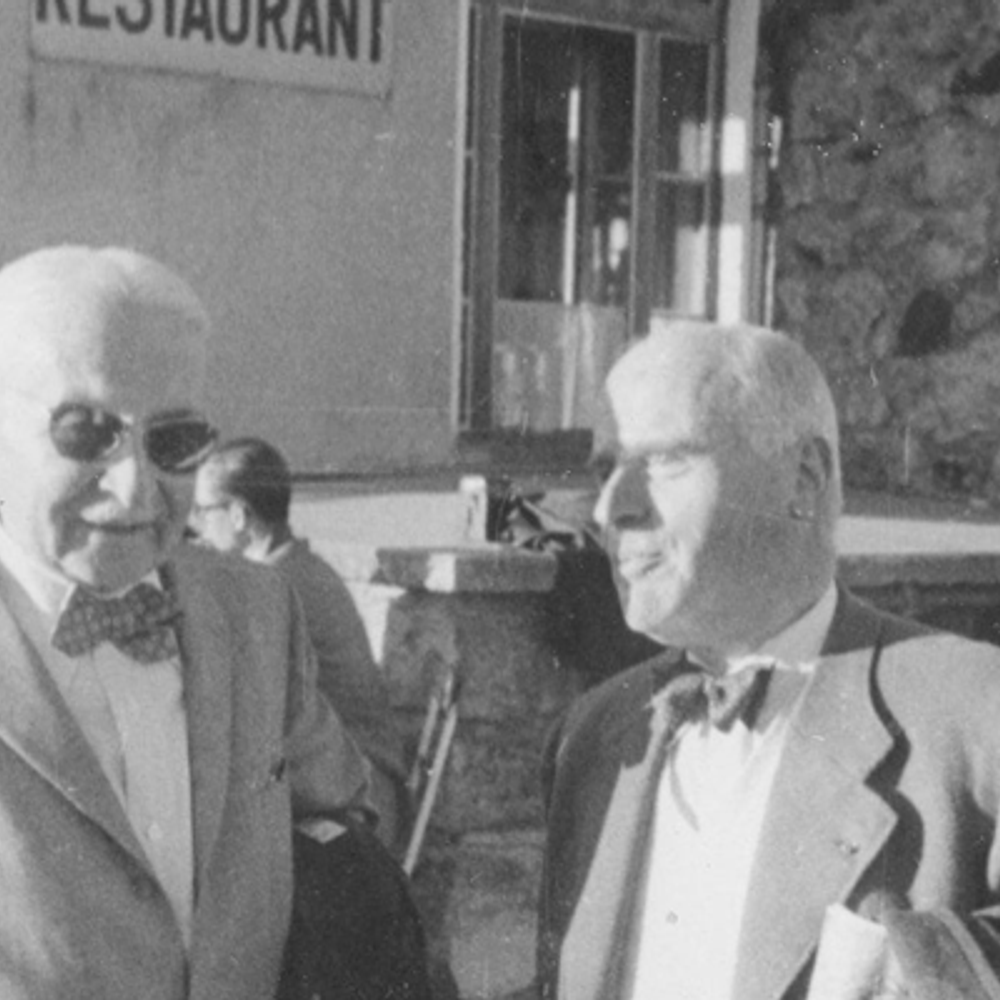
Finding Alabama
Rockwell later served as Paul’s congressional chief of staff from 1972 to 1982 and worked at the Law and Economics Center at Emory University in Atlanta, where he gained experience in a nonprofit setting.
Rockwell did research on how to form his own nonprofit.
“I had to get permission from the government,” Rockwell said. “Permission so our contributions could be tax-deductible.”
When the Mises Institue began, it was located in Washington, D.C.
“That was the one place I did not want the Institute to be located,” Rockwell said. “But I thought that from everything I knew, it would be easiest to deal with the government in that area.”
Rockwell resigned from the Law and Economics Center and lived on savings for several years while working on establishing the Mises Institute.
Rockwell said the institute received initial opposition from other groups, such as the Koch Foundation, which was started by brothers Charles and David Koch.
“I thought at the time that it was necessary to be affiliated with a university,” Rockwell said. “… I approached a bunch of universities. None of them were interested, and most of them were hostile. The only one that was interested was Auburn. The dean of the business school was a great man and very interested in us. He was not an Austrian and not a libertarian, but he thought it would be good for the business school to have an organization like this incorporated in it.”
The Mises Institute was affiliated with Auburn University until 1998 when it moved across the street. It now sits on West Magnolia Avenue, next to the original Momma Goldberg’s.
Rockwell said the decision to dissociate with the university was due to conflict with a board member. However, he said the institute does not have a hostile relationship with the university.
“We’re delighted to be here,” Rockwell said. “Any student, any faculty who’s interested in us, we’re interested in them … I still think this is a good place to have the Institute because it was possible to do it at a reasonable price … It’d be difficult to have anything in New York or Washington D.C. because everything’s so expensive. It’d be difficult to have students come there. It’d be difficult to have programs there. So, I must say that I’m pleased that we’re here.”
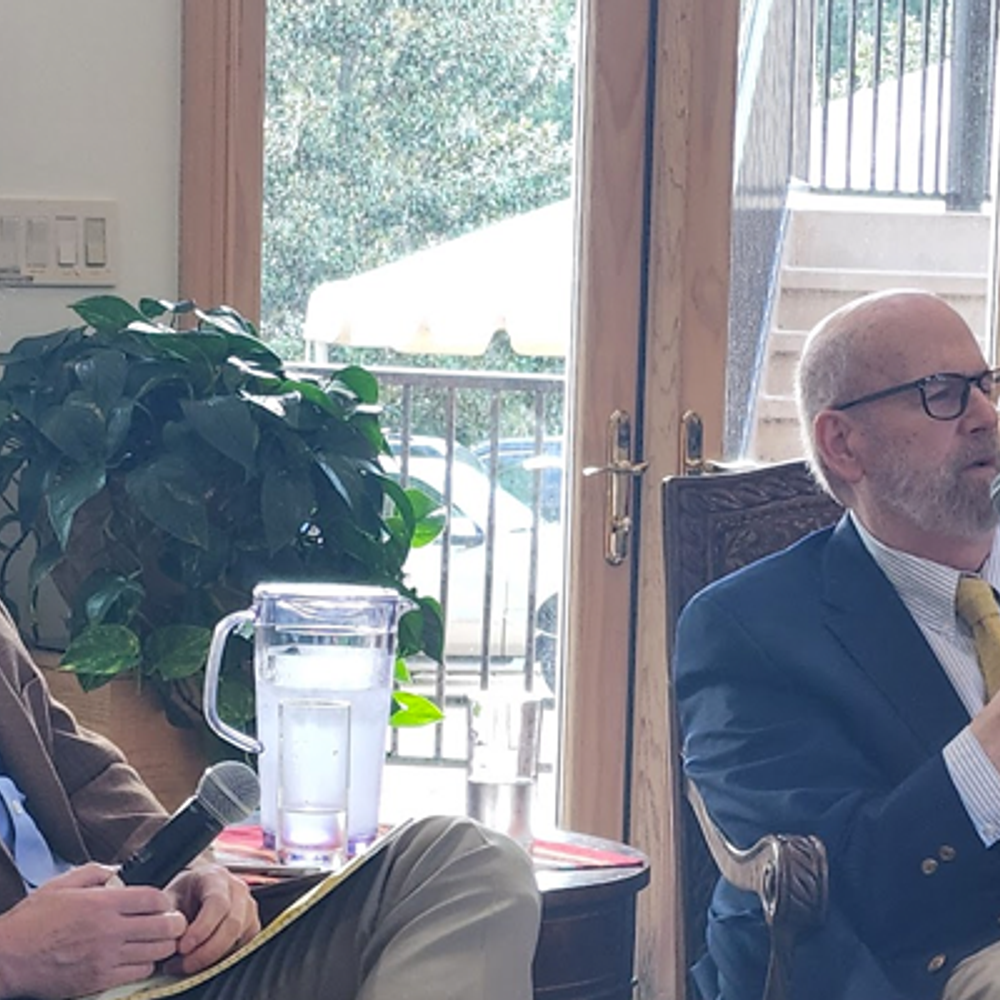
The early role of Murray Rothbard
Rothbard served as the original academic vice president of the Mises Institute. Other early supporters included Paul, Henry Hazlitt, F.A. Hayek and Burt Blumert.
“Murray loved old-fashioned jazz,” Rockwell said. “We were walking to a jazz club. We were going to meet a friend of mine … I said to Murray ‘Murray, I would love to start a Mises Insitute, and I would love it if you would be our economic guide and in charge of all our programs that I think eventually will come about.’ He actually lept in the air and clapped his hands. I’ve never seen anything like that outside the movies or something.”
Rothbard suffered from a heart attack in January 1995. He died that day at the age of 68. The Mises Institute dedicated a library to him, which is located on the ground floor of the building.
“I’ll say, I miss him every day,” Rockwell said. “He was so funny, so interesting, so brilliant. As far as I could tell, he knew everything.”
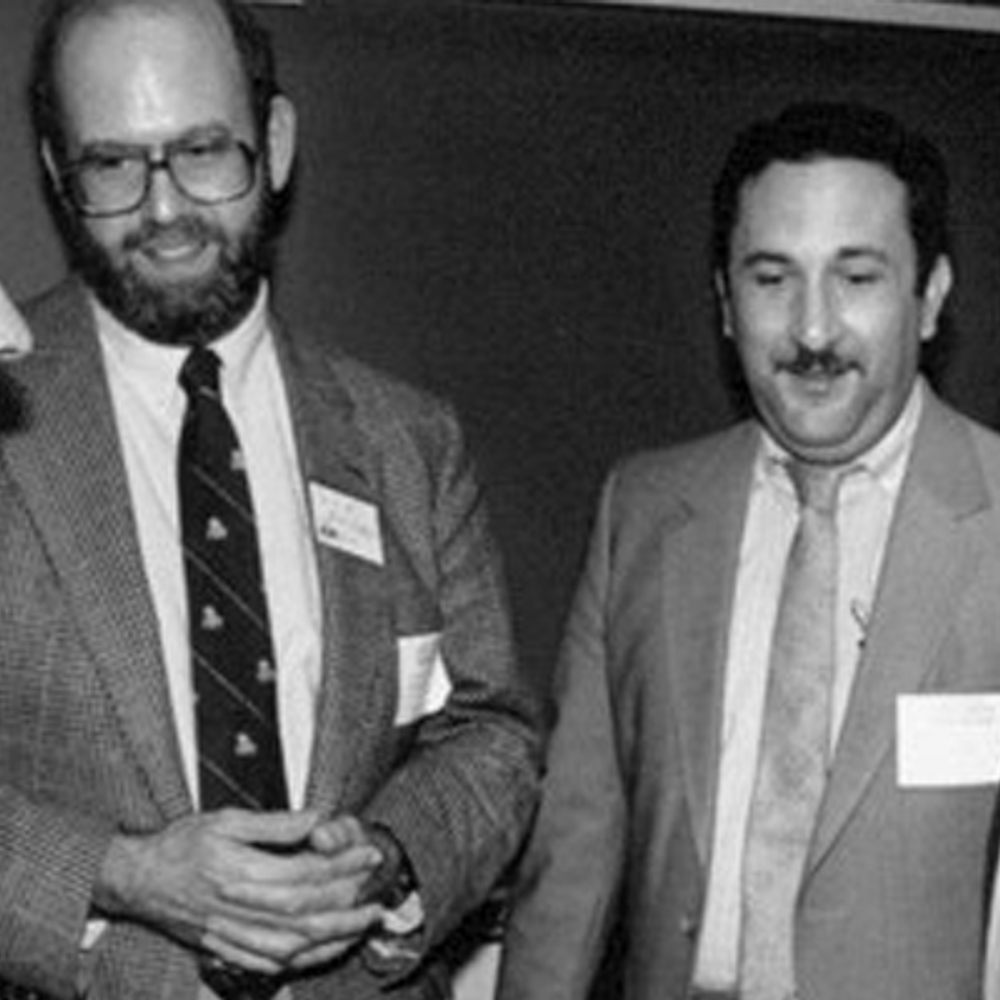
Mises University
The Mises Institute started Mises University in 1986.
Rockwell said that it was "smack-talking" from a friend of his who worked with the Foundation of Economic Education in Atlanta that inspired him to create Mises University.
“He looked at me, and he said. ‘Lew, we’re going to put you out of businesses,’” Rockwell said. “I thought, ‘I can’t let that happen.’ … So that’s what gave me the idea for Mises U.”
Mises U not only offers an opportunity for students to learn. It is also designed for students to network with like-minded individuals, get a chance to meet the faculty and engage in thought-provoking conversation and even explore Auburn.
All Mises U students are accepted on full scholarship. Students must apply at the beginning of the year. Those who are accepted receive accommodations for seven nights, transportation between the Auburn University Hotel and the Mises Institute campus and meals.
Mises U students are given a stipend at the beginning of the week, paid for by donors. This stipend can be used to purchase meals throughout the community on nights that dinner is not supplied at the Mises Institute.
At the end of the week, students have the option to take an exam that gives them the chance to win an honors certificate and cash prizes. The student with the best record chosen by the examining committee will be awarded the Douglas E. French Scholarship Prize of $2,500. There are also second and third place prizes of $1,500 and $750.
“We’ve had thousands of students over the years,” Rockwell said. “They typically tell us that they learn more on this week than they do in four years of college. Students tend to be smart and educated. Professors always say, ‘This is nothing like being a professor.’ Even in top schools, most of the students couldn’t care less about what’s going on. Here, every student is looking at you and wanting to absorb everything you say.
“... Students tell us that they form lifelong friendships here and also with the professor, so it’s tremendous."
Mises University students come from all around the world. International students find the Mises Institute online or get involved through other Mises Institutes in other countries. Though the Mises Institute in the United States is not formally affiliated with these institutions, it maintains a good relationship with them.
Solomon Norred is a student at Cumberland Law School. It was his second year at Mises University, and he described himself as an anarchist. He said he found out about Mises University through his father, who collected signatures for Ron Paul.
“I like to see the resolve of people who want to change the world for good,” Norred said. “I like to see ideas being discussed with all types of people, all different types of theories. It’s just hopeful to see that we’re fighting, even if it gets hard. But I love discussing the politics. I love discussing the history. It only just gives more weight to its existence.”
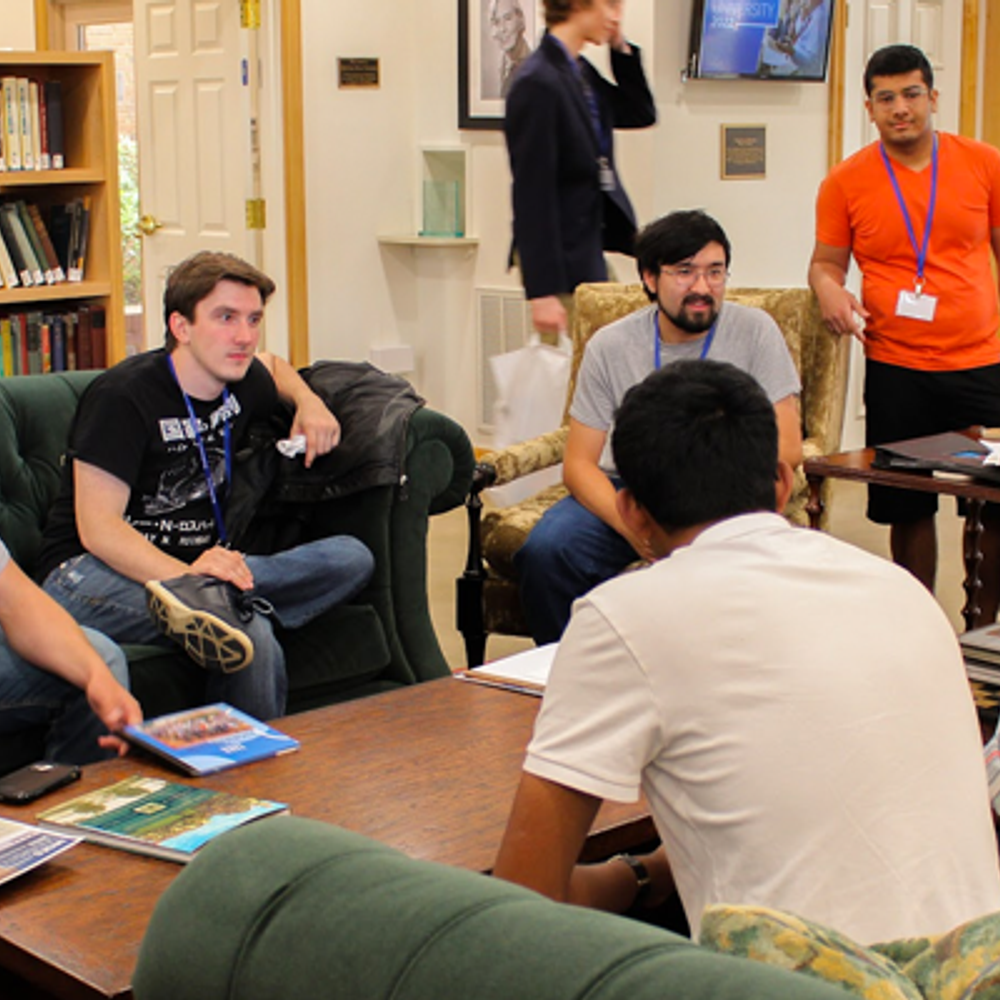
Rockwell said he hopes more Alabamians will get to know the Mises Institute by going to Mises.org and reading some of the articles on its blog, the Mises Wire.
“[Austrian economics] has a lot to do with what is happening in Alabama,” Rockwell said. “I think that if they look at our website, read some of our articles, [Alabamians] would find themselves very much at home and maybe become interested in what we’re doing… We’d definitely love more people from Alabama to be interested in us.”
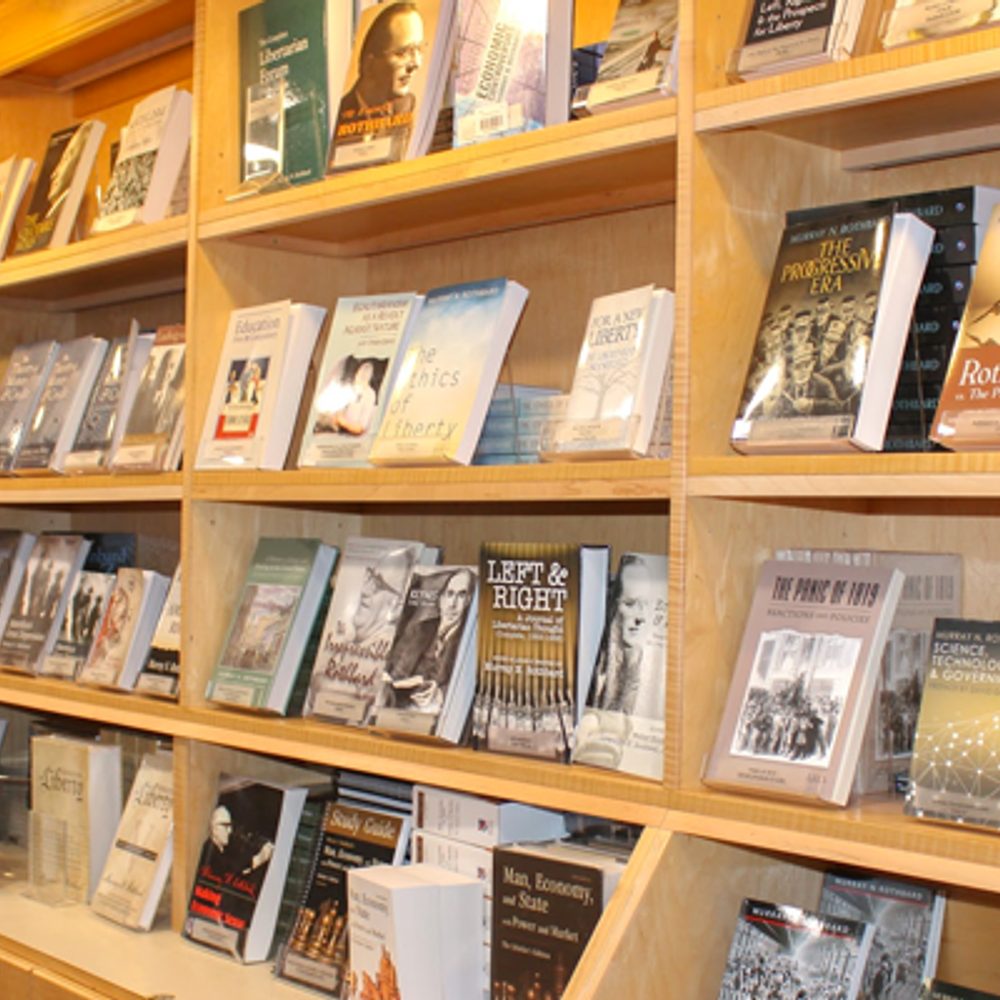
The Mises Institute website provides countless free resources, including ebooks, audiobooks, blogs, podcasts and information about events and programs. The institute also has its own bookstore where it sells physical copies of books, clothing items and merchandise.
You can also follow the Mises Institute on Facebook and Twitter.
To connect with the author of this story, or to comment, email will.blakely@1819news.com or find him on Twitter and Facebook.
Don’t miss out! Subscribe to our newsletter and get our top stories every weekday morning.


